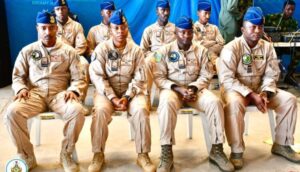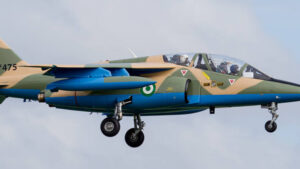The Nigerian Air Force (NAF) has graduated a new cohort of combat-ready Unmanned Aerial Vehicle (UAV) operators after completing the Operational Conversion Training Course 3/2024. The graduation ceremony took place on July 24, 2025, at the 233 Wing Hangar in Kaduna, marking a major step forward in the NAF’s drive to strengthen its Intelligence, Surveillance, and Reconnaissance (ISR) capabilities.

According to an official statement, the training program is part of the NAF’s broader effort to improve precision operations, provide real-time intelligence, and offer critical aerial support to ongoing counterinsurgency and internal security missions across the country.

Representing the Chief of the Air Staff (CAS), Air Marshal Hasan Bala Abubakar, at the event was Air Vice Marshal Patrick Obeya, Air Officer Commanding Tactical Air Command. He described the graduation as a strategic milestone that reflects Nigeria’s commitment to enhancing its defence infrastructure and achieving battlespace superiority.

Air Marshal Abubakar emphasized that the successful completion of the course aligns with his vision of a highly skilled, agile, and mission-ready air force capable of tackling evolving security challenges. He praised the graduates for their resilience and professionalism, urging them to maintain high standards of discipline and excellence as they provide critical intelligence to support joint military operations.

The CAS also encouraged the new UAV operators to remain innovative, continuously upgrade their skills, and work collaboratively across intelligence, engineering, and operational sectors to maximize mission success. He highlighted the rapidly evolving nature of UAV warfare, which demands more than just piloting skills—it requires the ability to integrate data, think strategically, and make decisive actions under pressure.

The ceremony, attended by senior military officers, family members, and well-wishers, underscored the NAF’s proactive approach to modern warfare and its unwavering commitment to national security through the deployment of advanced technology and highly trained personnel.




